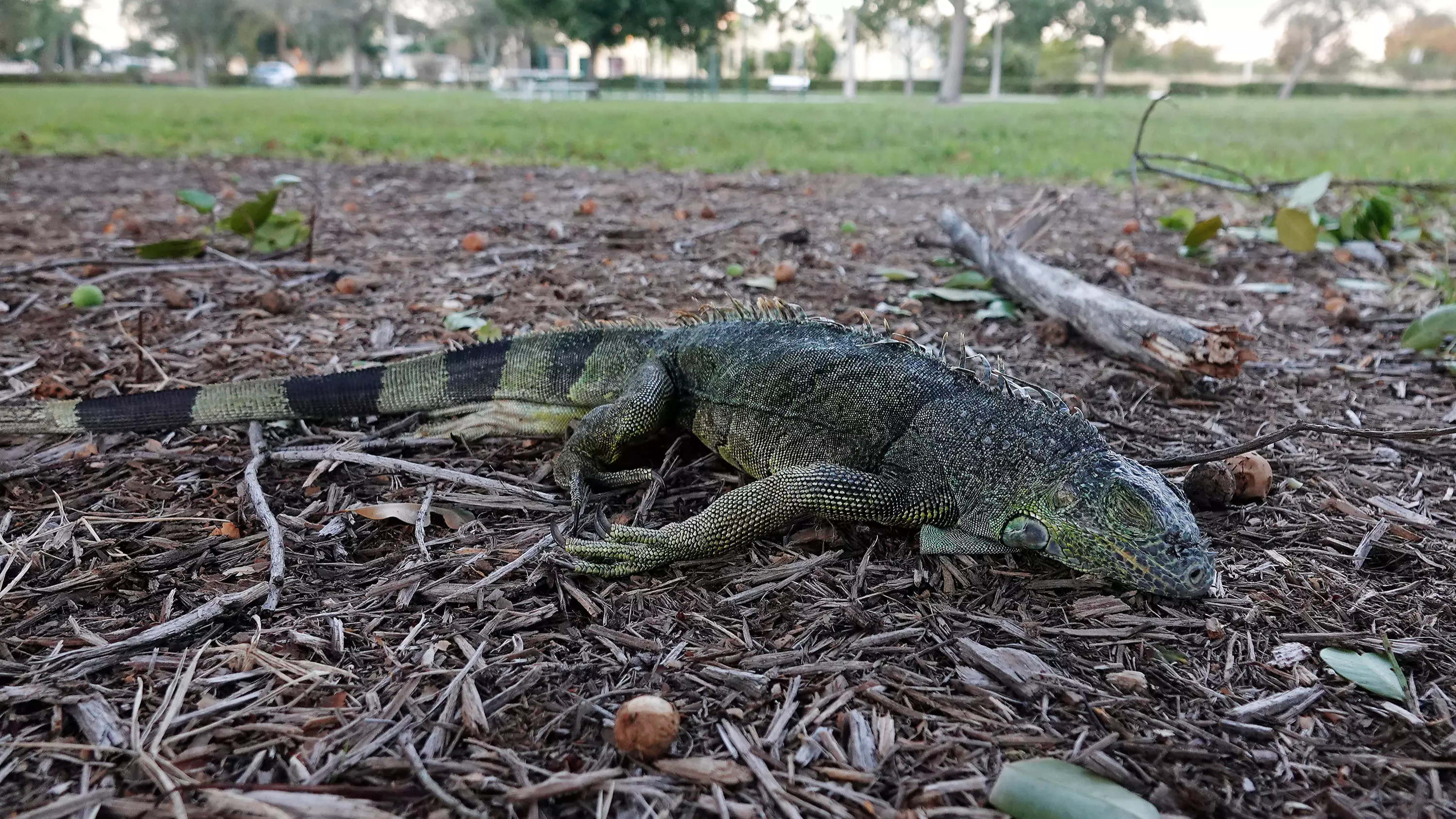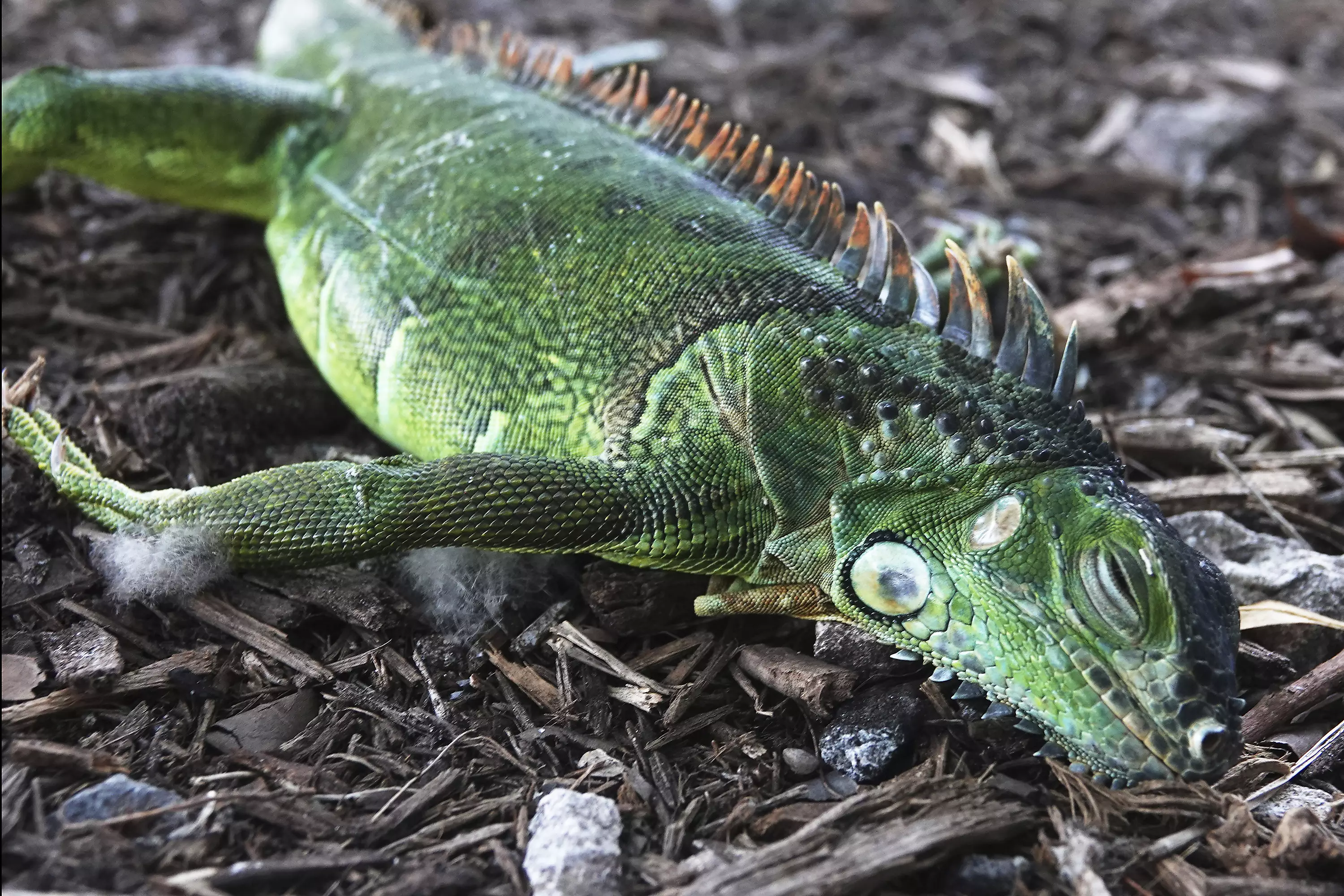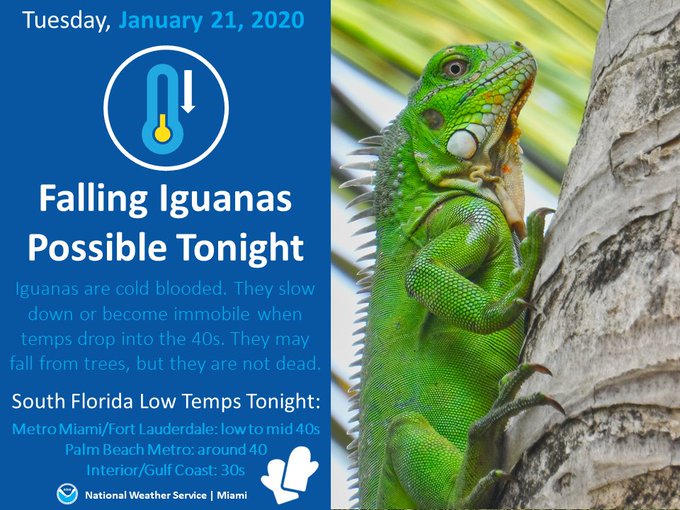
Weather experts have warned people to be on the look out for iguanas falling from trees.
Forecasters in the United States put out the alert yesterday after temperatures in the South Florida and Miami region were predicted to plummet overnight.
The National Weather Service (NWS) posted the warning on its Twitter account, stating that due to the incredibly cold forecast, iguanas could potentially start falling from the trees.
Advert
Admitting it was a fairly strange notice, the NWS said: "This isn't something we usually forecast, but don't be surprised if you see iguanas falling from the trees tonight as lows drop into the 30s and 40s. Brrrr! #flwx #miami."
But while this may be amusing to some, it is a serious concern for residents in the area. Iguanas are cold-blooded and sleep in trees during bouts of cold weather.
However, during extreme drops in temperature, they can go dormant, which means they stiffen up and appear to be dead, though they are not. If this happens, they may potentially lose grip and fall to the floor.
Advert
This generally happens when temperatures drop below 50 degrees Fahrenheit, increasing the animal's risk of death.
Speaking to ABC News, Ron Magill, communications director for Zoo Miami, said: "The temperature threshold for when iguanas begin to go into a dormant state depends greatly on the size of the iguana.
"Generally speaking, the larger the iguana, the more cold it can tolerate for longer periods."

And though this represents a danger for the animal, it also poses a threat to passers-by, who may be hit by the falling reptiles.
Advert
According to animals specialists, adult males can reach a length of five-feet and weigh up to 10 kg - which, I think we can all agree, is something we could do with not crashing down on us.
Magill went on to explain to the publication, however, that many of the iguanas in South Florida have adapted to deal with the cold temperatures by digging deep burrows to help stay warm.
He also explained that they often live near bodies of water, the temperatures of which are often warmer than those of the air.
Featured Image Credit: PA